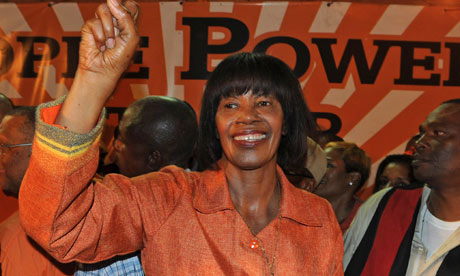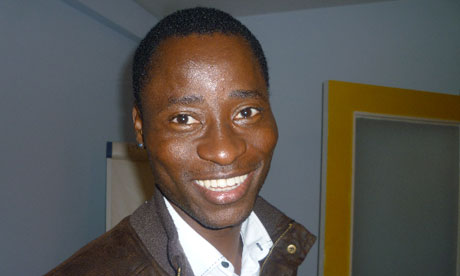 by Mike Peters
by Mike PetersIRMA Intern
Recently on the highly-active IRMA listserv we discussed the issue of "gay shame" and the increased depression, substance abuse, and suicidal tendencies that go along with that notion. The original posting had to do with a sense of internalized homophobia within the gay community. While members of our listserv debated the accuracy of the author's claims we questioned the author's own sense of internalized homophobia, the systemic nature of addiction and mental health, and how sexual health is packaged to the gay community, I felt conflicted about my own feelings on this piece.
Heterosexism
is a systemic reality in many of our various social settings that each of us
faces from time-to-time, and I can understand the sense of internalized
homophobia. It stands to reason that if
we are socialized in a society that is systemically heterosexist, then the
coming out process is not only a social endeavor but it also has to do with
deconstructing one's own understanding of their self within the heterosexist
system. Perhaps a story will best
illustrate this complicated notion.
While my previous blog post had to do with openly discussing anal sex with the
soon-to-be in-laws, I can admittedly say that I have not always been the
"open, silence-breaking feminist" that I am today. I grew up in a small, conservative Ohio city
in a religious household. My parents are
Christians of the Protestant, evangelical variety so there was very little discussion
of sexuality outside the realm of heterosexual procreative norms. That is to say, my brother and I were raised
to be manly, upstanding Christian men that would make faithful husbands,
providers, and fathers. While my brother
was much more interested in the typically "male past times" like
baseball and martial arts courses, I was much more interested in drawing,
photography, cooking, and swimming – so most of my parents' time was spent
invested in my brothers activities as I spent more time drawing alone in the
basement. I was certainly a quiet child
and would occasionally confide in my mother about my feelings, but was very
fearful of upsetting my father. Yes,
stark contrast to the talkative activist of today.
By the time
I had reached adolescence, I knew that I liked guys. I didn't quite understand it and certainly
couldn't talk to my parents because I thought that it was wrong. I had heard my father talk about gays and
lesbians before, describing them as "disgusting" and people that
"should be dragged out into the streets and shot", so my fears were
well-founded. Plus, the images of
homosexual men that I had seen, as discussed by my father and the church,
presented them as promiscuous drunks that were only interested in sex and
nothing substantial – they were something to avoid and be afraid of. Things got even more difficult for me as I
started to have feelings for another boy.
He ran cross country, so I joined the team to be around him. We became quick friends and soon I learned
that his home environment was very similar to mine, so it was nice to have
someone that I could relate to. We
started to hang out with each other outside of cross country practice and soon
I found out that he had feelings for me as well. Neither of us really knew what to do with these
feelings, so we dated secretly as we tried to understand ourselves. We were conflicted, our families and
respective church bodies had certainly hammered a less-than-favorable image of
homosexuals into our minds and we didn't want to be like those images. In fact, neither of us could even vocalize a
simple "I am gay" out loud, because we just couldn't bring ourselves
to that. We just liked each other,
that's not "gay"… we were just two guys that liked each other, that's
it – at least that was how we tried to understand ourselves.
Perhaps I
was a more daring teenager than my boyfriend, but when I was nearing the end of
my sophomore year of high school and on the verge of turning sixteen, I decided
that I wanted to start to feel connected to the gay community. The problem was that my and his understanding
of the gay community was that they were all bar-hopping, promiscuous folks, but
I wanted to experience that. He wanted
nothing to do with it, so without his knowing I obtained a fake ID that said I
was eighteen and gave me the fake name "Dylan Sanders". Immediately I started going to the
hole-in-the-wall gay bar downtown so I could go and dance. I was a terribly awkward teenager, and I know
that I couldn't dance to save my life, but I wanted to be a part of the gay
community, so I figured that I would learn.
Soon I found myself getting free drinks from all kinds of guys and
dancing for tips and under-the-table payments.
Honestly, I didn't like that I was going out and drinking so much, but I
felt like that is what I had to do to be a part of the gay community – so I
kept going and drinking down my feelings.
During my junior year of high school I started showing up to school
hung over and attempting to do assignments for classes in the class before it
was due. Obviously, my grades were
slipping and I continued to get more distant from my family. My relationship with my boyfriend was getting
more strained because he wasn't interested in going out to the bar. We both were unhealthily assuming that to be
gay we had to go out and drink and engage in other illicit activities, I was
drinking dangerous amounts of alcohol and he was bottling up all of his
emotions. Even though we were following
different paths, both of us continued to feel more and more conflicted about
who we were and therefore more and more depressed.
This story
continues, and it continues to a much darker place which is perhaps a story for
another day. But the original point
still remains – our understanding of the gay community was that of the
commonly-used stereotype that portrays the gay community as promiscuous drunks
that engage in risky behaviors. Truly, I
spent my teenage years engaging in some incredibly risky behaviors and hated
nearly every second of it. I engaged in
these behaviors because I felt that that is who I had to be to be gay and
assumed that all gay men were just like that.
Plenty of heterosexual people enjoy all those behaviors, but we don't
assume that all heterosexuals are dangerous, promiscuous deviants. Now, I am not saying that going out, having
drinks, and dancing is wrong – if that's what you're into, then that's fine. But that certainly wasn't for me. However, when all people are cast into a
light that portrays them all as deviant others, then those people are robbed of
their subjectivity and become objects.
This is where the power of the systemic reality of heterosexism comes
into play. My own internalized sense of
homophobia and stereotyping led me to believe that to be gay I had to be
someone that I wasn't. In an effort to
become the proud gay man that I am today I had to deconstruct the notion that
all gay men liked to drink and party and that was tough for me to do as that
was the only image I ever had. Did I
feel ashamed of the behaviors I was engaging in? Yes, but that's because it wasn't what I
liked to do but what I felt that I had to do.
Perhaps the roots of "gay shame" weave a much more complicated
relationship between the self and larger systemic heterosexism. If the images of gay men that I had seen
growing up had been different, even if my father and church continued to say
such negative things, perhaps I would have known sooner that they were wrong
about LGBT people and perhaps that would have spared me so much heartache that
I, in turn, internalized as what being gay meant.
-------------------
*Join IRMA's robust, highly-active. moderated, global listserv addressing rectal microbicide research and advocacy as well as other interesting new HIV prevention technologies by contacting us at rectalmicro@gmail.com. Joining our listserv automatically makes you a member of IRMA - a network of more than 1,100 advocates, scientists, policy makers and funders from all over the world.
*Please look for us on Facebook: www.facebook.com/InternationalRectalMicrobicideAdvocates, and you can follow us on Twitter: @rectalmicro.
*Also, please note that shared news items from other sources posted on this blog do not necessarily mean IRMA has taken any position on the article's content.
-------------------














